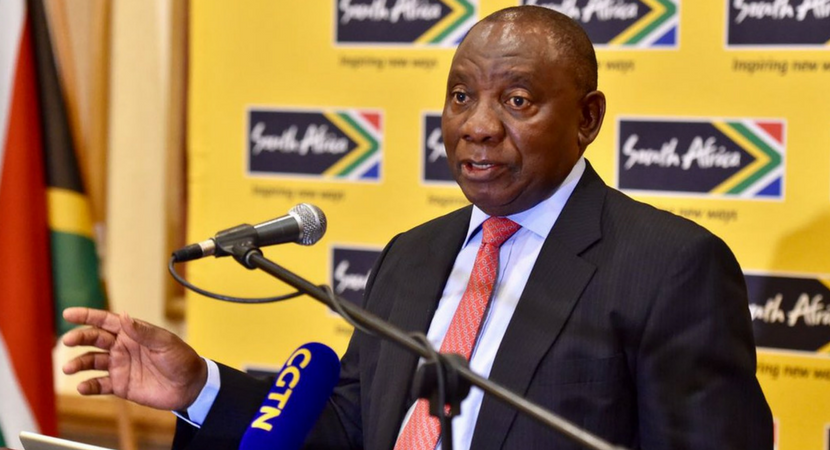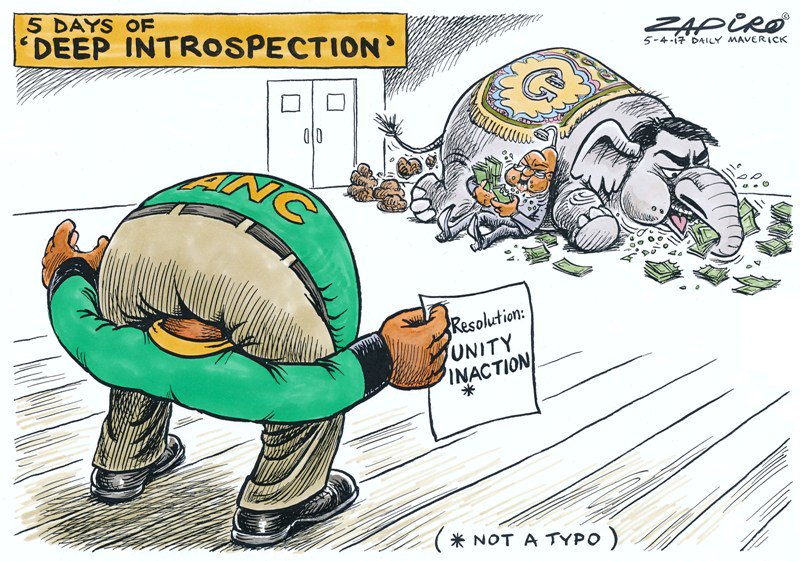It is too early yet to say with any confidence whether what has happened over the past six weeks indicates that the ANC might reform to survive, and set the country on a path to growth and stability.
Whether that will be the case hinges on how the new administration addresses two fundamental questions:
The first is the budget deficit. Both government revenue and expenditure as a share of GDP have continued to rise sharply – financed in part through the borrowing that doubled the debt-to-GDP ratio and through placing a now near intolerable burden on individual income tax payers.
As a consequence, Mr Ramaphosa’s new administration may not immediately have the money it needs to develop the infrastructure to support an economic recovery, while meeting the welfare and service delivery demands of several million households.
The antidote is growth, but our forecasts are that growth rates will this year underperform emerging market averages by around 70%. An economic growth rate of up to 2%, as policy makers are predicting, is nowhere near the watershed level for breaking the structural unemployment crisis – the second major obstacle the government faces.

To reduce the black unemployment rate to the white rate, which is competitive with developed economy norms, will require creating around one million net new jobs a year over the next decade. A 5% economic growth rate will get South Africa halfway there.
The third hurdle is in education. An assessment we conducted of the Grade-10 class of 2014 found that just over 50% of that cohort progressed to matric in 2016. Around 14% of the cohort qualified for university study at a standard set so low as to be useless to any serious analysis. Less than 3% of the cohort passed matric maths with a grade of 60% or higher – a qualification that offers a young person the reasonable prospect of ascending to the middle classes within a decade.
Without doubling the number of matric maths passes every five years it will be very difficult for the government to deliver on demands for middle class access.

Reflecting on these three policy challenges will temper the expectations of even the most fervent South Africa bulls.
The events of the past six weeks are very welcome but meeting popular expectations is a much greater challenge than the bulk of recent commentary has suggested – and a challenge that extends well beyond the problem of state capture.
There are three reasons for doubting whether the government will move more swiftly towards these reforms.
If these obstacles are overcome, what would a sufficiently ambitious and effective reformist agenda entail?
Market sentiment, time and again, reveals three areas of investment disincentives.
The first is empowerment policy, which, as practised, is often seen as a tax on investment and an attempt to extract wealth on behalf of a small political elite. Unless fundamental changes are made to empowerment policy, South Africa will not succeed in becoming a competitive investment destination again. Equally, we argue that until empowerment policy is revised to focus on the inputs (education and entrepreneurship being key) necessary to accelerate disadvantaged people into the mainstream economy (with beneficiaries being identified on the grounds of established socio-economic disadvantage, rather than race), the benefits will not reach as deep into poor communities as they must.
The second area of investor concern is threats to property rights, which inescapably project South Africa as a country in which an investment is not as safe as it might be in competing jurisdictions. Diluting the constitutional protection of property rights – even purportedly for land reform objectives, which in itself would be foolhardy – would for decades affix a flashing red light above the gateway to the economy.
Property rights must be sacrosanct if we are to attract the investment we need, and to allow poor households to start accumulating assets. Title to their homes would be a good start, as would title and proper financing for emerging farmers.
The third is labour market policy that prices poor people out of work. Far from protecting the most vulnerable from exploitation, the consequence of South Africa’s labour regulatory regime is often to exclude poor people from the most important avenue to social and economic advancement – the chance to get onto the first step of the labour market ladder where they will learn the skills denied to them in our weak school system and earn the income that will rise to rival and then exceed their welfare income as their skills and therefore productive capacity grow.
Reforms to all three areas of policy are necessary if South Africa is to draw the investment to make possible the growth which will, in turn, lead to higher levels of employment.

Yet, even though the case for reform is compelling, we wrote earlier this year in the media that, “all three areas of reform attract needless controversy through … the fallacious argument that reform would advantage only the elites in society and further disadvantage the poor”.
South Africa’s own track record of the past 20 years, and the correlations between investment and growth and living standards and popular confidence in the ANC that underpin that record, dismisses more powerfully than anything else the fallacy that there is a binary trade-off to be made in policy between the interests of the established middle classes and investors on the one hand and the poor on the other.
 This points to a necessary step towards reform; investing more time and money in tackling, in public, the fallacious arguments that underpin the current policy malaise in the country – to fight and win what Thabo Mbeki understood so well as the battle of ideas. The fallacies that current empowerment policy is the only effective strategy for ensuring meaningful black economic participation, that current labour market regulation is in the best interests of the poor, that giving more power to officials will finally solve problems of access to high quality schools, and that the property clauses of the constitution are to blame for the dearth of black commercial farmers – must be defeated before reform can be expected to occur.
This points to a necessary step towards reform; investing more time and money in tackling, in public, the fallacious arguments that underpin the current policy malaise in the country – to fight and win what Thabo Mbeki understood so well as the battle of ideas. The fallacies that current empowerment policy is the only effective strategy for ensuring meaningful black economic participation, that current labour market regulation is in the best interests of the poor, that giving more power to officials will finally solve problems of access to high quality schools, and that the property clauses of the constitution are to blame for the dearth of black commercial farmers – must be defeated before reform can be expected to occur.
The battle of ideas, then, is ultimately what the ‘terrain of struggle’ must be reduced to, since the fallacies and the grip they exercise will perhaps prove the most formidable obstacle to policy reform.